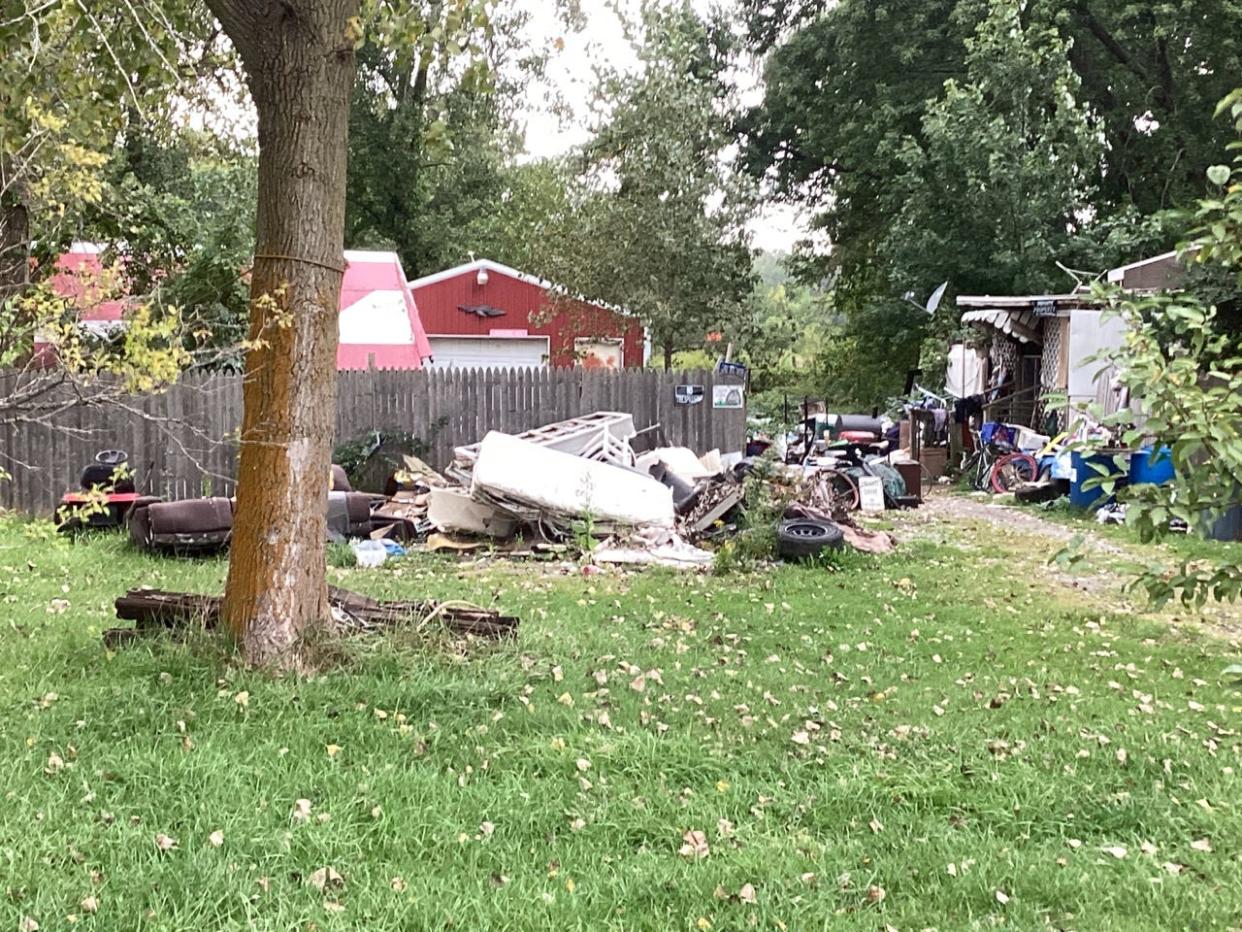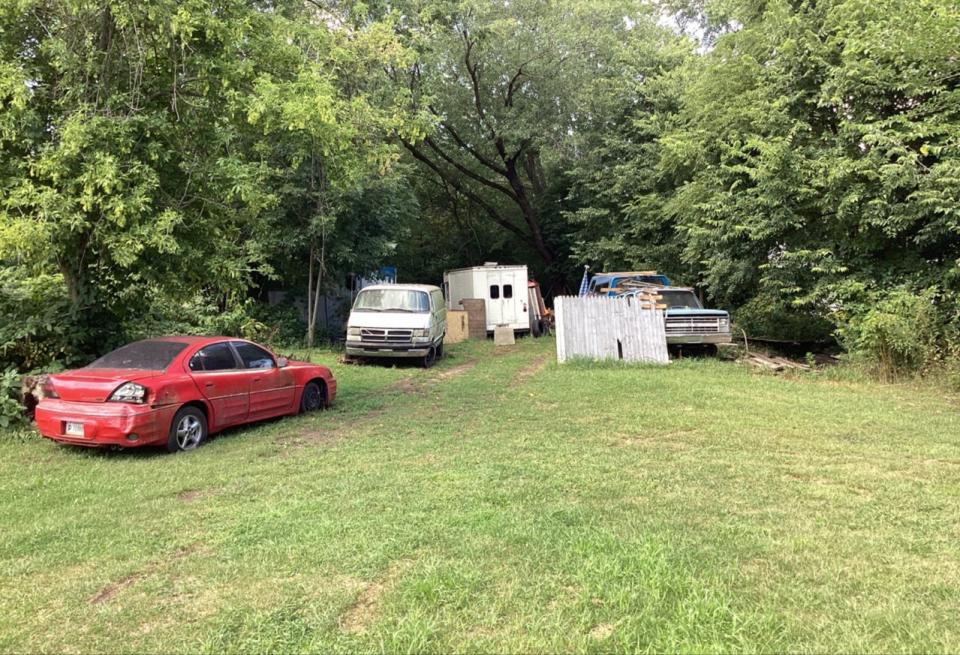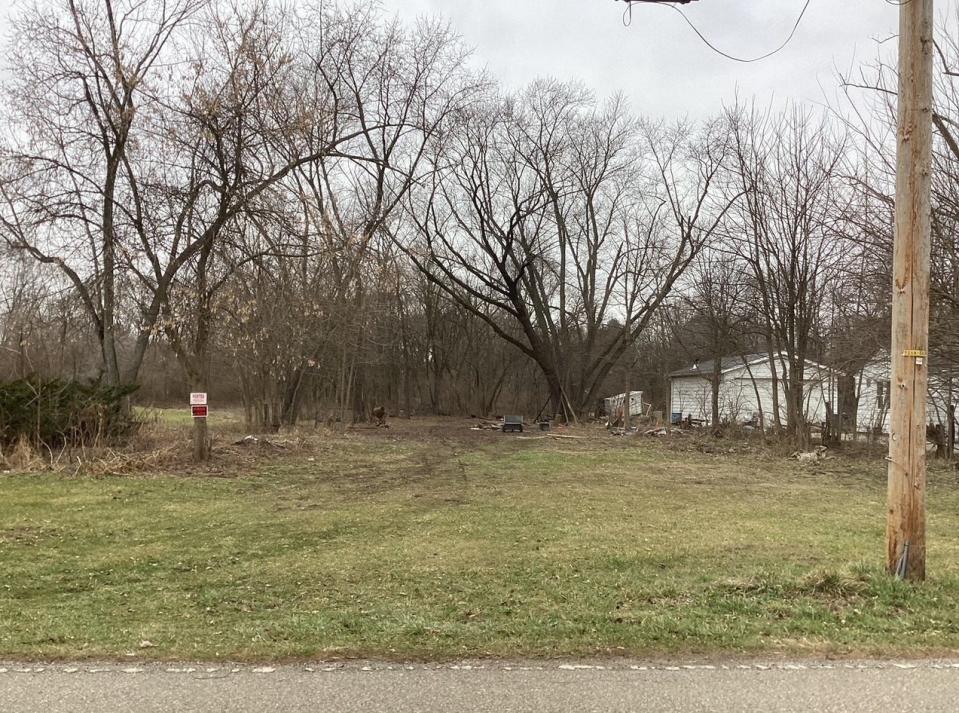County Code Enforcement office sees success, 633 cases in its first year

Overgrown weeds in a neighbor's yard? A vehicle graveyard down the road? An unsightly brush pile in the front yard across the street?
If you live in the unincorporated area of St. Joseph County, the County Code Enforcement office can help.
The code enforcement office, the first program of its kind serving the unincorporated portions of the county, was established at the beginning of last year when funding was approved for its creation. On April 1, 2022, the office and its inspectors began enforcing three ordinances: an Abandoned Vehicle Ordinance, a Public Nuisance Ordinance, and a Weed and Rank Vegetation Ordinance.
The first two months:St. Joseph County code enforcement begins, addressing weeds, junk with courtesy notices
Citizens can report properties in violation of these ordinances to the code enforcement office via an online complaint form.
Since April, inspector Steve Szaday ― one of three code enforcement inspectors ― said, as of Feb. 10, the office has received more than 700 complaints.
"That being said, many of those may have been duplications or ones that didn't apply to the ordinances that we have," Szaday said.
He said the code enforcement office works in coordination with the county's building and health departments to address violations that fall outside of the three code enforcement ordinances.
Minus duplications and complaints that fall outside of the code enforcement office's purview, Szaday said, the office has opened 633 cases since April 1. In May, he said, open cases were at their peak with the office investigating 525 ordinance violations.
Some of the most common violations Szaday sees are abandoned vehicles and nuisance items such as car parts, demolition remains, tires, scrap metal and other discarded materials. The Abandoned Vehicle Ordinance allows county officials to remove inoperable vehicles if left in view of public property for at least 20 days or if left on other private property without permission.
"We have a fair amount of vehicle graveyards in the county," St. Joseph County Division of Planning and Zoning Executive Director Abby Wiles said. "Think five, 10, 20 vehicles on a property that haven't moved in years."

After a violation such as an abandoned vehicle, junk pile or overgrown vegetation is reported and investigated, contractors working with the code enforcement office remove, clean up or mow it at the property owner's expense if the property owner does not clean up the violation themselves.
Escalating fines of $100, $200 and $500 can be issued for repeat code violations.
As the code enforcement office enters its second year, Wiles and her team are in the process of reviewing the ordinances and making a couple of administrative changes over the next few months. She said they are hoping to add some additional nuisance items to the Public Nuisance Ordinance. Members of the code enforcement team plan to attend a County Council committee meeting on Tuesday, Feb. 28, to work toward these and other goals.
Code enforcement for rural living
Throughout the code enforcement office's first year, Wiles said, it has strived to build a program that makes sense in the lives of those living in the county's unincorporated communities.
"We wanted to make a program appropriate for the county, appropriate for rural living and appropriate for our capacity to deliver a program," she said. "That's why we didn't put out a full suite of ordinances like you would see in a city or a town."
She added this is also why the ordinances do not regulate the length of grass in backyards or where in their yard a property owner can park an operable vehicle.
Human Rights Defense Center files suit:St. Joseph County jail settles lawsuit, to allow inmates access to educational literature
In 2021, as the county began planning to establish the code enforcement office, four public meetings were held where citizens could provide feedback on drafts of the ordinances. Szaday said some people objected to regulations prohibiting brush piles in front yards, arguing they could be natural habitats for animals.
In writing the regulations against brush piles, "We had worked with the DNR and representatives of local environmental groups to make sure that we were not ruling out the ability for people to plant pollinator gardens or have a compost bin," Szaday said. "With brush piles, a natural habitat isn't three feet off the street where it can be dangerous for wildlife. The regulations are for (brush piles in the front yard only). So, just to clarify, not all brush piles are subject."

The code enforcement office is complaint driven
One of the challenges in the code enforcement office's first year has been reminding citizens that inspections of ordinance violations are solely complaint driven, Szaday said. This means inspectors do not drive around looking for violations and cannot open a case on a property unless a complaint has been filed first.
"A lot of folks, especially in our initial public meetings, would have comments like, 'Oh, you have to drive down this road'" and see these violations, Szaday said. "We don't have the ability to start a case off of what we see."
Complaints can be filed online or by calling an inspector. However, Szaday said, inspectors prefer complaints be filed online because, that way, the complaint is already in the system when the code enforcement office begins the case.
At last:St. Joseph County's first ever morgue is expected to be complete this spring
Once a case is resolved, inspectors do not continue to monitor the property where it took place.
"Just because your grass grows long one year doesn't mean every year we're going to come back and check on your grass," Szaday said. "We have quite a few other cases to deal with."
Citizens largely support code enforcement efforts
Szaday and Wiles agree that community feedback on the code enforcement office has been overwhelmingly positive. The inspectors regularly receive "thank you" emails, calls and voicemails.
"We've had dozens of people call that are happy with what we've already done," Szaday said. "We've had dozens of people call and say, 'We've had eyesores that had been there for decades that have now been removed.'"
Most of the time, Szaday continued, the only pushback the office receives is from people who are unfamiliar with the ordinances. Szaday tries to be understanding in these cases.
"We understand that not all these things happen in a few weeks, so sometimes they take more than a few weeks to clean up," he said.

Wiles said the inspectors have been effective in getting people to comply with the ordinances.
"I am continually amazed at how well the program has been received by the community and how much the (inspectors) are able to achieve compliance without having to put forward work orders for cleanup," she said.
In all but 25 to 30 of the 633 cases, property owners cleaned up the violations on their properties before contractors needed to be called, Wiles added.
"There's some peer pressure in it," Szaday said. "We've had some folks who've had complaints filed against them that, frankly, felt a little embarrassed, and it was just the right motivation … to get things cleaned up."
Email Tribune staff writer Claire Reid at cereid@gannett.com.
This article originally appeared on South Bend Tribune: St. Joseph County Code Enforcement office sees success in first year

